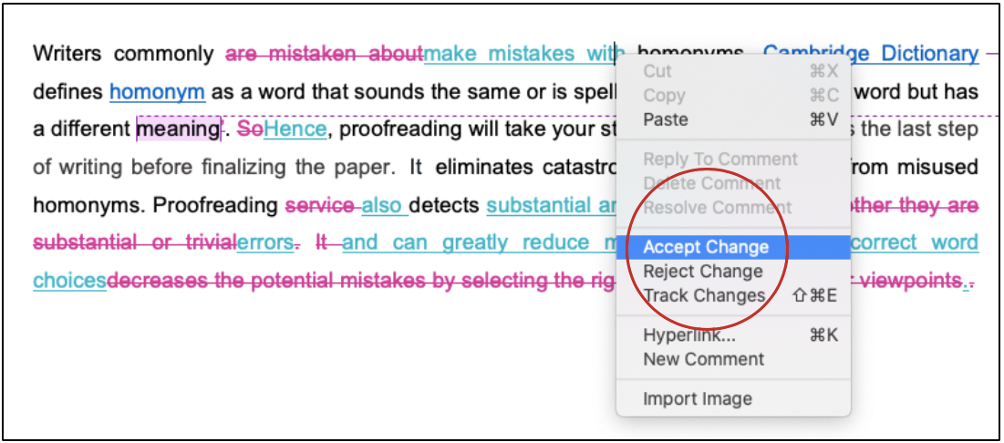Writing and publishing a scientific research paper require more than just bookish knowledge. Every year, thousands of scientists and researchers strive to publish their research papers in suitable journals, but many of them fail without following proper guidelines. In this quick guide, intended for graduate students and other young scholars, we identify 7 common pitfalls and offer helpful solutions to prepare more impactful papers.

This article discusses 7 basic steps to publishing in a scientific journal. To give you an opportunity to practice proofreading, we have left a few spelling, punctuation, or grammatical errors in the text. See if you can spot them! If you spot the errors correctly, you will be entitled to a 10% discount.
Writing and publishing a scientific research paper require more than just bookish knowledge. Every year, thousands of scientists and researchers strive to publish their research papers in suitable journals, but many of them fail without following proper guidelines. As a professional proofreading and editing service, we often find that many aspiring scientists rush to publish their research but ultimately face rejection.
According to Springer, approximately 80% of the proposed articles or manuscripts face rejection at the time of screening. That means only 20% of scientific articles get approval. Being a trusted proofreading and editing expert, we can feel the depth of mental agony a researcher experiences after the rejection. In this quick guide, intended for graduate students and other young scholars, we identify 7 common pitfalls and offer helpful solutions to prepare more impactful papers.
Choosing a topic strategically is the initial as well as the most important step of preparing a scientific manuscript efficiently. While choosing the topic for the manuscript, make sure that the topic is logical and argumentative. Don’t choose a topic that is very common and was discussed many times in the past. Most importantly, restrain yourself from choosing any topic that doesn’t interest you. You may consider the following tips to select a good topic.
Be specific about the research
Start brainstorming.
Select the topic and give it a form of a question.
Create an outline for research
Choosing a topic is useless if you can’t find a trusted journal to publish your research. Here, you need to go through extensive research to trace a journal to publish your research. You may seek advice from your fellow researchers and senior authors. You may refer to Elsevier Journals, Web of Science, and other publishing outlets.
Writing the manuscript efficiently is the most crucial part. If you commit any error in this part, the manuscript will get rejected for sure. Generally, a scientific research paper follows this basic structure.
Mention all the used references and complete in-texting.
Conclude your research.
Discuss the result and elaborate on the data.
Mention applied methodology as well as materials in this part.
Write attractive information.
Write a logical and informative abstract.
Use an appropriate title.
While writing, restrain yourself from mentioning any false statement and make your research paper free from plagiarism. If you copy or paraphrase from another research paper, there is a high chance that your paper will trace plagiarism. However, having caught plagiarism can have the worst impact on your career and lead to several legal issues.
We often find that some researchers use false or imaginary statements to skip plagiarism. However, it can weaken the plot of your research and lead your research paper to rejection.
It is an essential but an ignored part of the process of article publication. You should send an impressive cover letter to the editor about the outline and purpose of your research. If you can convince the editor with your manuscript, the editor sends the manuscript for review. Two or more reviewers will review your manuscript. During the process, they contact you to inform you about the status of your manuscript.
As per the report of Elsevier, approximately 30% to 50% of articles face rejection due to poor use of the English language and inappropriate review. Another study by NCBI revealed that about 20-30% of the manuscripts can be very quickly categorized as unsuitable or beyond the scope of the journal. We notice that some researchers ignore the review part and ultimately get rejected. Here, they can consult an experienced proofreader and editor to get their manuscript reviewed. An initially written manuscript generally encounters many issues related to grammar, syntax, choosing words, and sentence structure, etc. An experienced proofreader and editor review your entire manuscript and makes required changes to make the article more informative and error-free.

If the status of your submission is “revise & resubmit,” it is time for you to check all the comments very carefully and address all the necessary changes positively. While revising your manuscript, you need to remember that you have to resubmit the revised manuscript within the given deadline. However, the entire process of revision and resubmitting demands the following two documents:
Updated manuscript as per the instruction of reviewers
A letter to the editor addressing the changes made in the manuscript.
You need to draft these two documents very carefully. For the best result, you may consult an experienced proofreading and editing service to address the comments of the reviewers more efficiently. You may also find the following articles helpful:
Conclusion
Publication of an article in an appropriate journal is a milestone in your academic career. However, if you have already completed your manuscript, you can contact the ‘Best Edit & Proof’ to review your article and make necessary changes associated with grammar, tone, sentence construction, and use of language. You may contact our experts for more information.
Best Edit & Proof expert editors and proofreaders focus on offering manuscripts with proper tone, content, and style of academic writing, and also provide an upscale editing and proofreading service for you. If you consider our pieces of advice, you will witness a notable increase in the chance for your research manuscript to be accepted by the publishers. We work together as an academic writing style guide by bestowing subject-area editing and proofreading around several categorized writing styles. With the group of our expert editors, you will always find us all set to help you identify the tone and style that your manuscript needs to get a nod from the publishers.
You can also avail of our assistance if you are looking for editors who can format your manuscript, or just check on the particular styles for the formatting task as per the guidelines provided to you, e.g., APA, MLA, or Chicago/Turabian styles. Best Edit & Proof editors and proofreaders provide all sorts of academic writing help, including editing and proofreading services, using our user-friendly website, and a streamlined ordering process.
Visit our order page if you want our subject-area editors or language experts to work on your manuscript to improve its tone and style and give it a perfect academic tone and style through proper editing and proofreading. The process of submitting a paper is very easy and quick. Click here to find out how it works.
Our pricing is based on the type of service you avail of here, be it editing or proofreading. We charge on the basis of the word count of your manuscript that you submit for editing and proofreading and the turnaround time it takes to get it done. If you want to get an instant price quote for your project, copy and paste your document or enter your word count into our pricing calculator.
Contact us to get support with academic editing and proofreading. We have a 24/7 active live chat mode to offer you direct support along with qualified editors to refine and furbish your manuscript.
Follow us on Twitter, LinkedIn, Facebook, Instagram, and Medium.
For more posts, click here.
How to Determine Variability in a Dataset
14.10.2023
How to Determine Central Tendency
19.02.2023
How to Specify Study Variables in Research Papers?
14.01.2023
Population vs Sample | Sampling Methods for a Dissertation
14.01.2023
How to Ensure the Quality of Academic Writing in a Thesis and Dissertation?
04.12.2022
How to Avoid Anthropomorphism in Your Dissertation?
04.11.2022
How to Write a Research Paper After Finishing a Dissertation or a Thesis
28.08.2022
How to Write a Research Methodology Section for a Dissertation and Thesis
07.08.2022
How to Write a Theoretical Framework for a Dissertation and Thesis?
05.08.2022
How to Write Literature Review for a Dissertation and Thesis
02.08.2022

Academic writing is the type of writing style that requires a lot of attention to details, rules, and regulations. Mainly used for, as you might have guessed, academic purposes, it is one of the most common writing styles for professional works. However, as regulated and strict it is, it is also easier to make mistakes here. One such very common mistake that happens all the time for several researchers is sentence structuring. Sentence structuring has always been a little tricky, academic writing or not. That is why a great emphasis is made on them during the editing and proofreading phases. This article discusses the most common sentence structuring mistakes and how you can avoid them.
Continue Reading
Some essays use logical and factual data to sustain their claims. They are known as argumentative essays and form a significant proportion of all essays written by scholars and students during their academic tenure. This article demonstrates how to write an argumentative essay by dividing the writing process into four detailed steps. Hence, readers looking to augment the plausibility of their argumentative texts should ensure to abide by them.
Continue Reading
Who decides the layout requirements for a dissertation? The answer is primarily clear, either your supervisor or department. Nonetheless, each program has a standard guideline determining page numbers and table of contents. Should you use MLA or APA citation style, you follow the MLA format guide or APA guide. Here are 10 useful tips for dissertation layout and formatting.
Continue Reading
We may have qualitative, quantitative, and mixed methods in dissertations. This blog will elaborate on quantitative dissertations, qualitative dissertations, and mixed methods dissertations by addressing their similarities and differences.
Continue Reading
Finding a dataset's middle or average is critical and involves measuring central tendency. The central tendency's most common measures include the mode, median, and mean. The mode is the most repeated measure in a data set.
Continue Reading